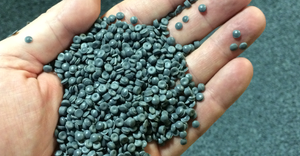Mondelez Commits to Making all Packaging Recyclable by 2025
Mondelez International is the fifth major company to agree to As You Sow’s request to make all packaging recyclable.
Following engagement with As You Sow and a strong shareholder vote earlier this year, food and beverage company Mondelez International committed to making all of its packaging recyclable by 2025.
Shareholder advocacy group As You Sow has been engaging the company for several years to make its packaging recyclable, especially its multi-laminate pouches, like those used for Tang, Oreo and Chips Ahoy. These materials cannot be recycled and often end up discarded, polluting waterways.
“We welcome this action by Mondelez International following shareholder engagement on recyclable packaging and related plastic pollution issues,” said Conrad MacKerron, senior vice president of As You Sow, in a statement. “We hope the company can actually achieve this earlier than 2025, as every month seems to bring new findings about the severity of plastic pollution.”
According to a report released on October 9, Mondelez packaging was the fifth most frequently found brand waste collected as part of more than 200 audits done in 42 countries by environmental groups working on plastic pollution.
Mondelez is the fifth largest consumer goods company to make a significant commitment to recycling packaging following engagement with As You Sow. In 2014, Procter & Gamble agreed to make 90 percent of its packaging recyclable, and Colgate-Palmolive pledged to make packaging recyclable in three of four operating divisions, both by 2020. In 2017, Unilever agreed to a similar commitment by 2025. In August 2018, Kraft Heinz agreed to make all packaging recyclable, compostable or reusable by 2025.
At its annual meeting in May, 31 percent of Mondelez shareholders representing $12.4 billion in market value voted for an As You Sow shareholder proposal asking the company to set a timeline for making packaging recyclable.
A 2015 scientific study estimated that 8 million tons of plastics are swept into waterways annually—equivalent to a garbage truck load every minute. In the marine environment, plastics break down into indigestible particles that marine life mistake for food. If no actions are taken, oceans are expected to contain more plastic than fish by 2050.
About the Author
You May Also Like


